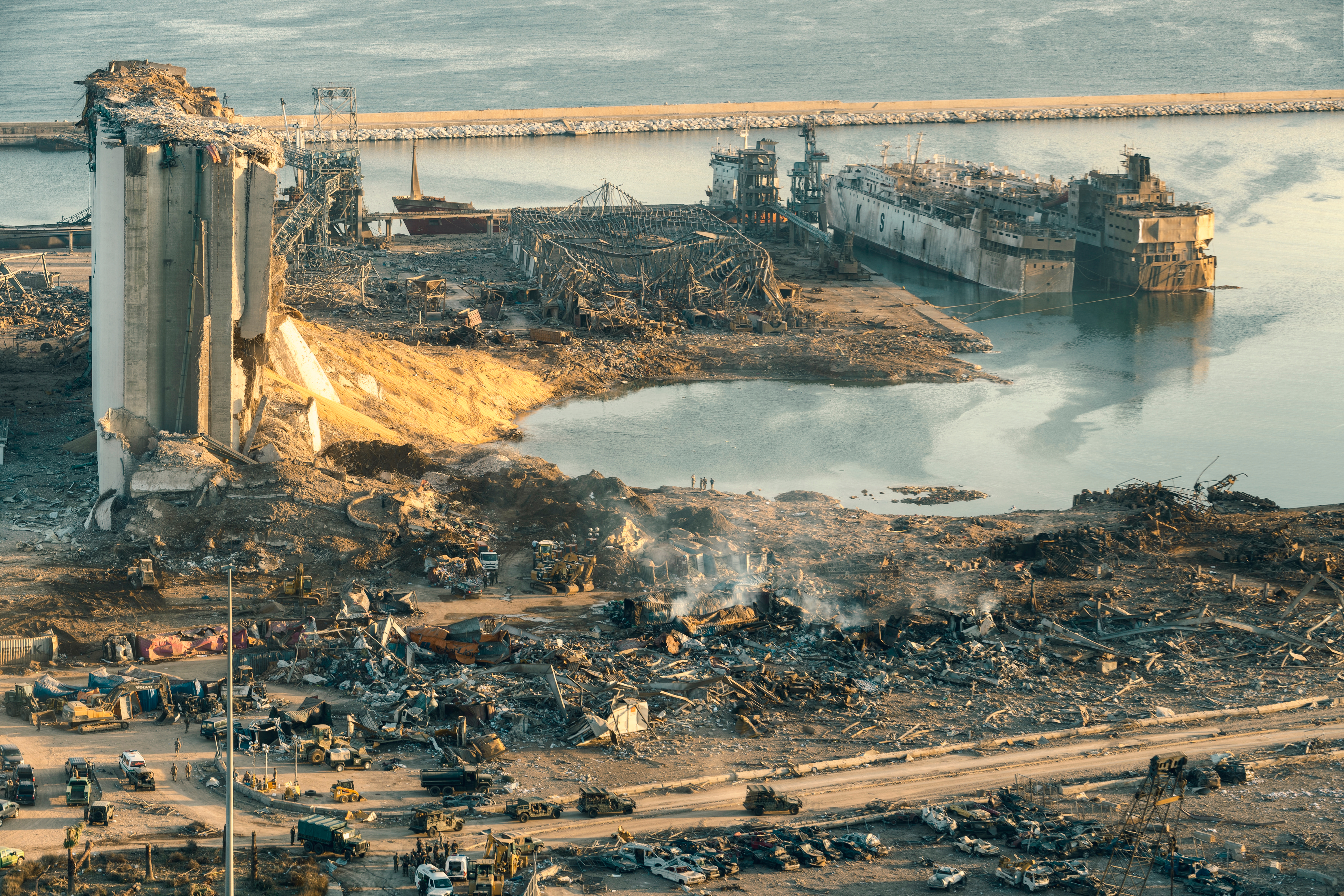MENAPOL Blog
One year after the disastrous explosion

August 4th marks the commemoration of the catastrophic Beirut blast, which killed more than 200 people, injured more than 6,000, and destroyed large parts of city. Many people have not been able to come to terms to what has happened. This comes as no surprise since for many, everyday life has become a never-ending nightmare: the lack of medicine, the long queues in front of gas stations, or the collapse of the Lebanese currency are making daily life ever more challenging. Speculations on when the country would collapse have been looming. Yet, a country does not collapse overnight; the collapse is happening gradually. The depreciation of the Lebanese pound, for example, has resulted in the devaluation of the salary of a Lebanese soldier from the equivalent of 1,000$ a month to around 70$. No one can support a family with such a salary and more and more Lebanese are now dependent on the help of others.
It comes as no surprise that the middle class is disappearing: they either become poor or see no choice but to leave the country. The explosion has certainly accelerated this trend, especially among the younger generation. This is particularly worrying since the young generation is desperately needed to get the country back on its feet. The importance of the young generation was particularly felt after the explosion. Mostly young people tirelessly replaced absent state structures to help clean and rebuild the destroyed neighborhoods. Despite their efforts, life is only slowly returning to the once vibrant streets. Many bars and restaurants are empty, more and more shops are closing. In the evening, Beirut sinks into darkness due to the lack of electricity resembling "Gotham City", the gloomy scenery of the Batman films.
The reason for the fast collapse also lies in the absence of an effective government as negotiations with the international community over rescue loans are on hold. Najib Mikati, recently appointed as Prime Minister, promised to induce change and effective solutions. However, even if he succeeds in breaking the political deadlock, it is questionable whether he will be able to implement the necessary reforms. Former independent MP Michel Moawad, who resigned after the explosion, does not expect any fundamental changes in Mikatis’ cabinet. In the past few years, the political system had proven to be impossible to reform, and change would certainly not come from the same political figureheads. Therefore, Germany and the European Union must remain cautious not falling into the trap of using well-intentioned financial transfers in order to keep a system afloat that will only enrich itself.
The political class is resistant to any type of change. This was proven repeatedly in the past years but especially after the Beirut blast when the Lebanese government announced that a rapid investigation is underway. After one year the relatives of the victims are still waiting for findings. The appointed judge, Fadi Sawwan, was dismissed under dubious circumstances in February, his successor Tarek Bitar had to start from scratch and his efforts are being boycotted from all sides. Ayman Mhanna, Executive Director of the Samir Kassir Foundation, is not surprised. In his opinion, an investigation or even a conviction against just one member of former governments would shake the entire political system. Consequently, no one is interested in making the investigation a success.
There might be ray of hope in the battered country, however. Opposition groups won the elections for the Syndicate of Engineers recently, when almost all of the seats went to independent candidates from the protest movement and civil society groups. Although these elections are not comparable to the parliamentary elections due to the complicated electoral law, this was a first notable success that many hope to build on for the upcoming 2022 elections. If opposition groups succeed in organizing themselves, this can be the starting point for positive political change in the country. Therefore, the international community must pressure Lebanese authorities for the 2022 parliamentary elections to actually take place and to be held freely and fairly. Any victory for the new opposition groups can bring back some hope for the Lebanese people. Hope that is so urgently needed in Lebanon today.